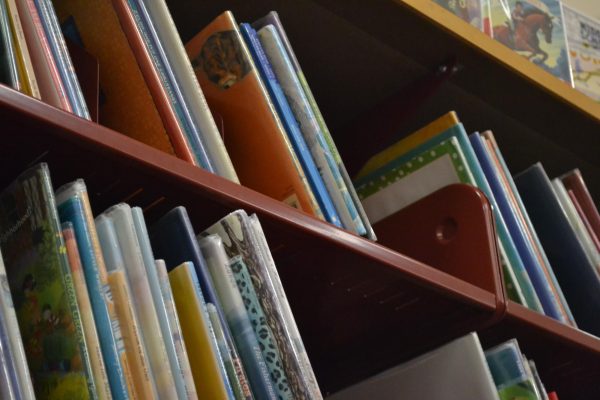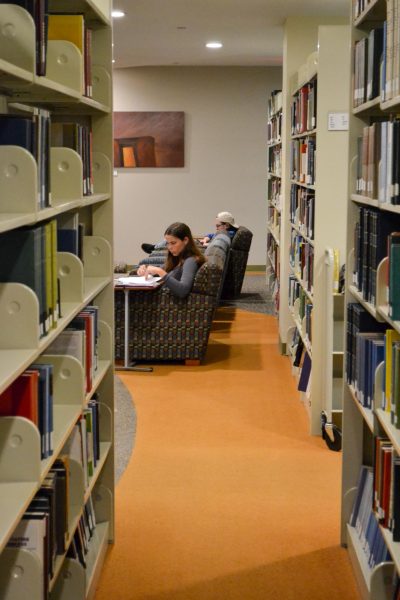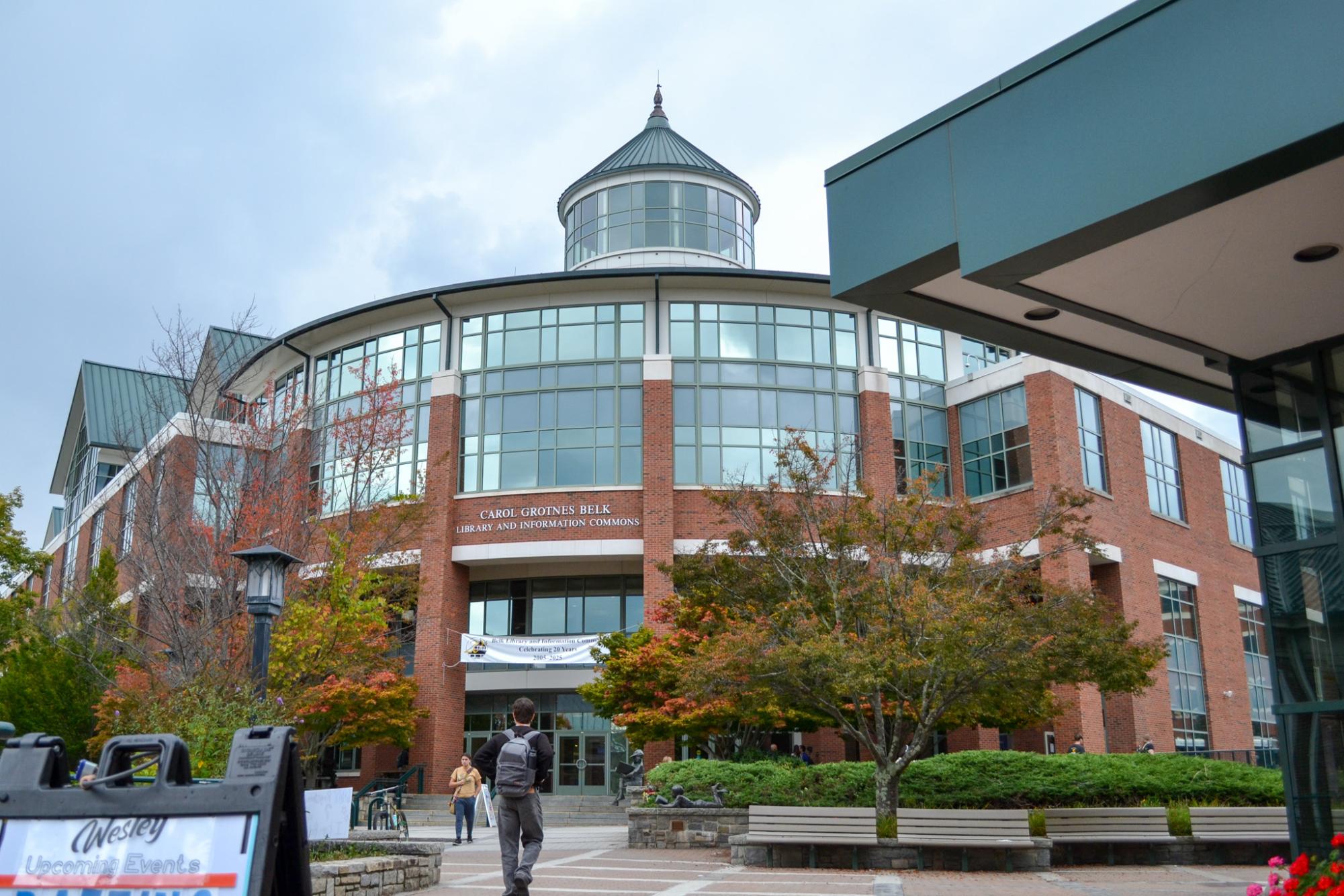Rows of books line the shelves of Belk Library and Information Commons — some old, some new, all filled to the brim with knowledge. Wide-eyed freshmen can be seen running their fingers across the books for the first time while seasoned seniors weave their way through the rows to their long-claimed study corners.
In an age where artificial intelligence platforms, like ChatGPT and Google Gemini, aid people with their everyday questions, libraries can be overlooked. Yet, with approximately 21% of United States adults considered illiterate in 2024 according to the National Literacy Institute, libraries have never been more essential.

On June 20, Belk Library celebrated two decades in its current building. Previously, it was located in Anne Belk Hall, which was designed to house roughly 400,000 books. Since moving locations, it has expanded far beyond the original capacity. According to Sue Polanka, dean of University Libraries, it currently holds 600,000 print volumes in its permanent collection, as well as 2,258,000 electronic books, or e-books.
20 years ago, these two million e-books were not a part of Belk’s collection. A 2023 study from Harvard Graduate School of Education declared e-books can be used as a tool to help children improve reading within early childhood development. For $10 a year, community members can purchase a library card and utilize both physical resources and e-books, providing a chance to promote childhood education and literacy outside of the classroom. Community members can also peruse the shelves of Watauga County Public Library for free year-round.
Monica Caruso has been working at the Watauga Library, where she serves as a county librarian, for the last 16 years.
“We have something for everybody, at every age and every stage of their life,” Caruso said.
Watauga Library hosts a wide array of events, including book clubs catered to older audiences and a monthly LEGO club for kids to enjoy. In the last few weeks, it has started up a Girls Who Code group, where despite the title, children of all genders are encouraged to learn skills in coding and digital literacy. Three times a week, the library hosts a storytime celebrating children’s literature, literature that is catered toward preschool children.

According to The Nation’s Report Card released in January, literacy rates in the U.S. have declined by two points for both fourth- and eighth-grade students compared to 2022.
In response, libraries have stepped in to fill this gap, providing services to strengthen literacy and encourage reading outside of the classroom.
Over the past summer, the library’s youth-oriented reading program flourished.
“We also track the minutes read,” Caruso said. “So it’s like you’re encouraged to read for, like 20, minutes a day and then weekly you come back with your little log and then check it off. We record our information on our end and give you prizes.”
Caruso said there was a total of 6,500 hours of reading recorded, a 50% increase from the previous year.
Nearly 700 kids participated in the “Color Our World” themed summer reading program and many gathered in a conclusive celebration with excitement, face painting and ice cream on Aug. 1.
For librarians like Caruso, the job proves to be about much more than managing books. It also has a fundamental role in helping people. Raised by an educator, this commitment to helping others is what led Caruso to pursue her career 29 years ago.
“I think a lot of it is responding to community needs,” Caruso said.

When Hurricane Helene hit the High Country, it only took a few days for the Watauga Library to open its doors to the public. People used it as a safe space after the storm, gathering to access the free and always available Wi-Fi and feel the warmth of the strong, supportive environment. Similarly, Belk Library opened its doors to the public for one week post-Helene, offering shelter, power, free internet access, printing services and clean water to anyone who needed it.
Other than its welcoming response to disaster and its extensive collection of books, Belk Library has many other services to offer within its walls.
“We are much more than a book repository,” Polanka said. “We have really vibrant services that are growing and changing according to the needs.”
Opened in the fall of 2022, the lower level of Belk Library houses the Makerspace, a design lab featuring a variety of tools for all things creative. Sewing machines, craft materials and 3D printers are some of the crafting tools the space provides. All students can use this space, whether for class projects or outside interests.
On the fourth floor, the special collections archive highlights some of the one-of-a-kind novels Belk Library holds. Polanka said, in the archive, nestled between two rocking chairs, students can access oral history collections, which hold nearly 40 years of Merlefest recordings. Students can also access interviews with prominent artists, such as Sam Bush, in special collections.
Polanka encourages students to utilize these services both within their education, as well as in developing life skills to aid with their future careers.
“I am a students-first librarian,” Polanka said. “I make my decisions based on what I feel is best for the students.”


Barbara Perry Sheldon • Oct 9, 2025 at 9:53 am
Enjoyed the article about the libraries. As a commuter student in the late 60’s I spent much time in the library on campus. My summer job was working in the county library that used to be in the stone building by the courthouse. Libraries serve a vital function in the community.